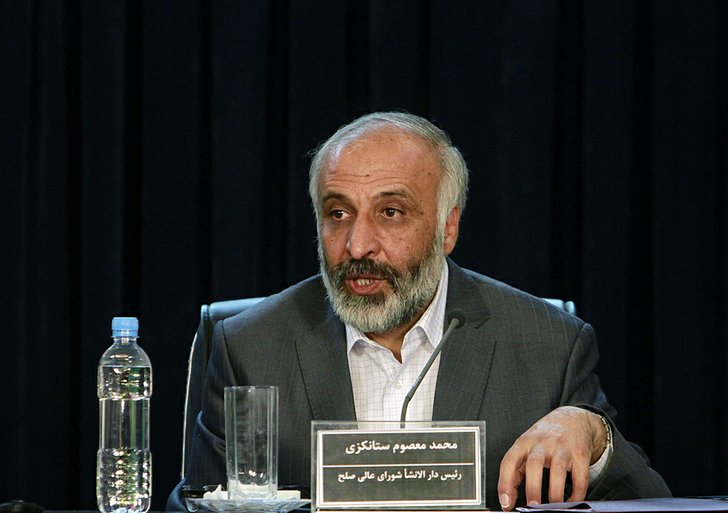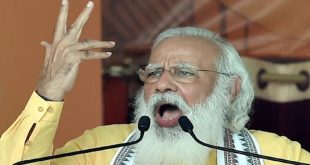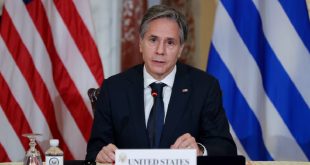AT News
KABUL: Mohammad Masoom Stanekzai, Head of the Negotiation Team of Afghanistan and some members of the negotiation team attended an online meeting of the Afghan Civil Society Forum-organization (ACSFo) and spoke about the Afghanistan peace process.
At the beginning of the meeting, Asadullah Saadati, Deputy Chairman of the High Council for National Reconciliation (HCNR), spoke about the various dimensions of war and peace in Afghanistan, calling the peace a national and religious necessity.
Mr. Saadati said that the Negotiation Team of Afghanistan includes representatives of different segments of the society, especially religious scholars. He called the role of religious scholars in the Afghanistan peace process valuable and influential.
Mohammad Masoom Stanekzai, head of the negotiation team, spoke about the role and direct and indirect influence of different countries, especially the Islamic countries, on the Afghanistan peace process, the state ministry for peace said in a statement on Monday.
While shedding light on the peace negotiations in Doha, Mr. Stanekzai called the escalation of violence in the country unacceptable and harmful to the people.
Mentioning the influential role of religious scholars, who are members of the negotiation team, Mr. Stanekzai expressed his gratitude for the unified position and rational and strong reasoning of the negotiations’ team members during the peace negotiations.
The head of the negotiation team, referring to the declaration of the International Union of Muslim Scholars (IUMS) regarding the illegitimacy of the current war in Afghanistan, said that the declaration was widely reflected and the position of Muslim scholars on Afghanistan and the ongoing war in the country is clear.
Mr. Stanekzai called the capacities created in the country in recent years, especially religious capacities, significant and hailed the role and activity of religious scholars in the peace process important.
He said: “We are in the transition phase from war to peace, and for the success of this phase, it is necessary to have a close harmony and empathy with the Islamic scholars of the country to create the necessary cohesion in the country, because the current violence and war in the country is against the principles of Sharia and Islam.”
Emphasizing strengthening consensus in various domestic arenas as an influential factor in the peace process, the head of the negotiation team said that the peace process is an intra-Afghan process, and Afghans should decide their fate according to the accepted logic and principles of the society.
Mawlawi Enayatullah Baligh, member of the negotiation team, spoke about the role and position of war victims and the youth in the peace process.
He said that our demand in the first step is to stop civilian casualties by reaching a ceasefire because our compatriots lose their lives in an illegitimate war every day.
Expressing that the youth’s role is vitally important, he said that our security forces are the youth of the country who sacrifice their lives to protect the homeland and the people, and we are all indebted to their sacrifices.
Mawlawi Enayatullah Baligh stated that our current system is an Islamic system, and to strengthen it and stop the ongoing war, we are ready for any kind of discussion and negotiation with the other side based on the principles and teachings of Islam. He further stated that protecting and securing the rights of different segments of society in the country is one of the basic guidelines of Islam, and we are ready for any kind of joint work in this regard.
Fawzia Koofi, another member of the negotiation team, mentioning that the role of religious scholars and women in Afghanistan has been notable throughout history, said that the role of moderate Islamic scholars and those who have an accurate understanding of religion is vitally important in ending the war and ensuring peace and stability in the country.
Ms. Koofi stressed the importance of women’s role in the economic system and society, and emphasized that their religious rights must be protected. She also said that Afghan women are an undeniable part of society. According to her, while Islam encourages education for both males and females, women should not be deprived of this right.
Mentioning that a part of the negotiating team’s working plan is a reasonable and justice-oriented treatment of war victims on both sides, Fawzia Koofi said that many consultative meetings had been held to include the voices of the victims, and we will continue to communicate with them.
At the end of the meeting, the participants shared their questions, concerns and suggestions, and were subsequently answered by the head and members of the negotiation team.
 Afghanistan Times
Afghanistan Times




